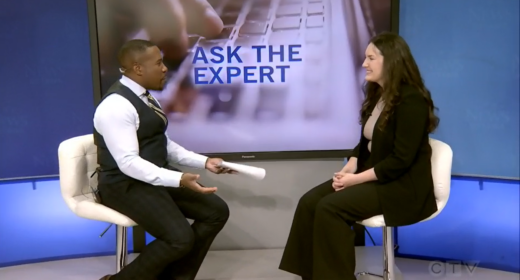The recent decision in Canadian Automobile Workers, Local 4266 v. Brinks Canada Limited recently emphasized the importance of obligations under a collective agreement to ensure union representation to employees in the course of workplace investigations. This is particularly so where the employee is the focus of the employer's investigation. In that decision, Arbitrator Sydney Baxter addressed whether the grievor, who had lost a parcel containing more than $12,000.00, was entitled to union representation at the initial stages of the employer's investigation.
The grievor, Mr. Tibbles, was an armoured truck employee responsible for collecting cash deposits from Brinks' clients. On November 11, 2011, Mr. Tibbles and his driver went to one of his employer's clients in Peterborough, Ontario to pick up a series of cash deposits. He was required to bring with him a "coal bag" to collect he deposits, but could not recall whether he had on this occasion. He collected several deposit envelopes from the client, and signed the store's receipt book indicating that the envelopes had been collected. Brinks' policies also required that Mr. Tibbles enter the deposits on its "vault holdover sheet" at the customer's premises. Mr. Tibbles did this only when he returned to the armoured truck before transferring the deposits to the back of the truck. Brinks later discovered that Mr. Tibbles had signed for eight deposits at the customer's premises, but recorded only seven on the holdover sheet. The error was discovered a month later, only after the customer complained that it had not been credited with its deposit of $12,046.59.
After an unsuccessful initial search, the branch manager and operations supervisor approached Mr. Tibbles and requested a written statement. Mr. Tibbles was not offered any union representation at that time. Brinks' security director then asked to interview Mr. Tibbles to gather further information in order to locate the package. The branch manager also asked Mr. Tibbles to attend a meeting with the security director. In that meeting, which lasted 1 1/2 hours, Mr. Tibbles provided a play-by-play account of November 11 events. After the meeting, Brinks suspended Mr. Tibbles indefinitely and claimed that the lost package was due to his negligence. During a meeting a few days later, with a union representative in attendance, Brinks terminated Mr. Tibbles' employment.
The collective agreement contained a clause permitting Brinks to interview employees in the course of an investigation, but requiring that a union steward be present where "…an investigator concludes that there are reasonable grounds to suspect a particular employee and intends to conduct a more focused investigation as to the particular employee…" The investigation focused on Mr. Tibbles and no one else. The union sought Mr. Tibbles' reinstatement as a result of Brinks’ failure to permit union representation during the investigation.
The Arbitrator upheld the grievance, and reinstated Mr. Tibbles.
In doing so, the Arbitrator emphasized that an employee's right to union representation in an investigation by management that may lead to the imposition of discipline was a substantive right. The breach of such a basic right will lead to the resulting discipline being declared null and void.
Although Brinks had a right to interview employees in the course of its investigation, the right to union representation was triggered as soon as it focused its investigation on Mr. Tibbles. As soon as Brinks asked that Mr. Tibbles provide a written statement, the investigation refocused on what he personally did with the package. He became a suspect. At that time, Brinks was required under the collective agreement to provide union representation. Brinks' failure to do so was a breach of Mr. Tibbles' substantive rights under the collective agreement.
The decision emphasizes the importance of union representation in the course of workplace investigations. This basic right will be broadly interpreted by arbitrators. Depending on the language of the collective agreement, employers may have an early obligation to ensure that union representatives are included in such meetings with employees. Failure to do so, even at the early stages of an investigation, can result in the overturn of subsequent discipline.


